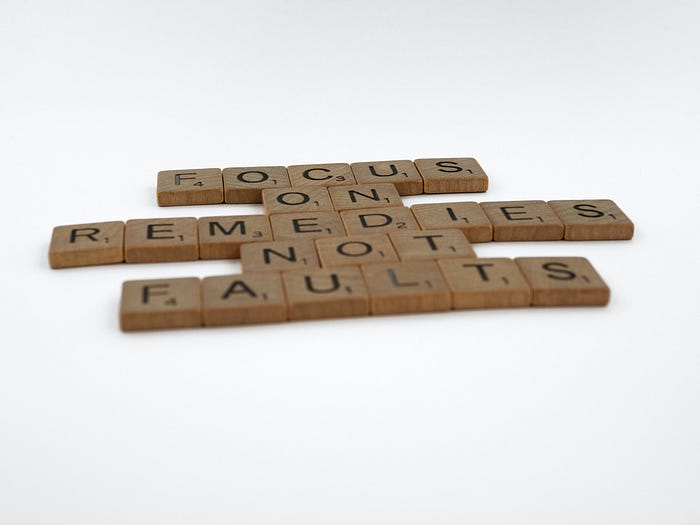#Sociology #Internet #Atheism #Reddit #Acceptance
This article was originally published to Medium on August 14, 2022. (https://medium.com/@non-monetized_together/people-on-the-internet-are-assuming-the-worst-of-one-another-80f52cad14f3?source=friends_link&sk=dfec150cec99e26c246633942eca4235)
Back in 2013, Reddit user Aalewis posted this to the atheism subreddit, going viral, prompting ridicule, and becoming a meme:
“Just to be clear, I’m not a professional ‘quote maker’. I’m just an atheist teenager who greatly values his intelligence and scientific fact over any silly fiction book written 3,500 years ago. This being said, I am open to any and all criticism.
‘In this moment, I am euphoric. Not because of any phony god’s blessing. But because, I am enlightened by my intelligence.’” — Aalewis (source: https://knowyourmeme.com/memes/in-this-moment-i-am-euphoric)
I will admit this quote certainly isn’t perfect. It reads like a teenager trying too hard to sound adult. As well as having punctuation errors, what does Aalewis even mean by “professional quote maker?” Yet they aren’t actually saying anything wrong for an atheist. I’m religious myself, and even I find it hard to interpret this post as meaning anything other than “atheism and human knowledge have been so useful for me that I have achieved a state of fulfillment equivalent to what spirituality promises to offer.” Tell me how you can be an atheist without agreeing with this.
Well, let’s see what others have to say. I’ll start with responses from the original thread, which is now only viewable on the Internet Archive. (source: https://web.archive.org/web/20130109064934/http://www.reddit.com/r/atheism/comments/15xwij/i_came_up_with_this_quote_just_a_few_minutes_ago/)

Image from Brett Jordan/Unsplash
“Hey, Aalewis.
If I’m right, you’re probably feeling pretty damn awful right now. If I were you then for the next few years you might cringe at night at the thought of having once posted this.
It’s one of the inevitable mistakes of that phase between youth and maturity. Every single person who posted in this thread has them too; I’ve got five I could name right now. There’s that one quote, “If I could do my life over, I would make the same mistakes, only sooner”; to that I say, bollocks to that. These kinds of things just suck like a black hole. But at the very least, we’ve all had them at some point.
I’ll point out the immediate things I want to get across. For a start, atheism doesn’t mean belittling theists or going out of your way to humiliate or disprove them. It means just not believing in divinity of any form. Neither does atheism immediately equal intelligence.
Secondly, it’s all well and good to be a smart bloke but without a healthy does of wisdom and humility you’re not going to be someone anybody could be happy to talk to.” — Priderage
Ridiculous. Priderage started off putting the blame on Aalewis for other people making fun of them, but then started promoting respect and humility, as if Aalewis wasn’t already doing so in the first place! Aalewis didn’t even mention theists in their post, let alone belittle them. Plus, they were humble — they just mentioned they were open to criticism. Also, atheism equals intelligence the same way that theism equals intelligence. Everybody has an intelligence, save for the comatose, the brain-dead, and the newborn.
Priderage’s response continues for a while but basically the entire gist of their comment is contained in the excerpt above (check the link for yourself to see their full comment). So no, their comment really does mean what it looks like it means. But what’s even crazier is that the comments were practically worshipping Priderage for making such a deep and meaningful response.
I really should at least compliment Priderage on the sympathetic nature of their reply, but the way it was paired with a message of mockery makes me question their true intentions.
Priderage may not be aware of the subconscious messages they communicated: making a tribute to atheism is an “inevitable mistake,” openly disagreeing with theism equals mocking it, some atheists lack intelligence, being content with earthly knowledge is not humble, and publicly supporting atheism means “you’re not going to be someone anybody could be happy to talk to.” The popularity of Priderage’s response really speaks to how fragile religious structures were in 2013 as well as how uncomfortable people were towards pro-atheist comments, even among atheists.
Or does it?

ammar sabaa/Unsplash
Could it be possible that I misread their response? Totally. Remember, I created this blog with the intention of writing not from a position of authority, but as an equal to my readers. I’m just one guy.
But if that’s so, then Priderage didn’t bother to consider the possibility that Aalewis’s comment may have just been an innocent shout-out to atheism. This shows that they nonetheless assumed the worst in people. As you will see, this is a pattern that got repeated through many of the other comments. If one of these commenters considered that maybe not everyone online is a jerk, this story could have gone very differently.
This next response is an example of a greater problem with the Internet that is so ubiquitous and unaddressed that I’m surprised that I haven’t written an article about it yet.
“Wow, that is so pretentious, poorly written and self indulgent.
I can just imagine how “deep” OP probably thought that was. He probably spent at least a little bit of time crafting that “quote” into what he thought was a concise and introspective nugget of genius. Now he deletes the post running away with his tail between his legs.” — ****ty-analogy
You should keep track of whenever you see someone online complaining that someone else thinks they are so smart. Nine times out of ten, they are talking about someone who never even hinted about such a thing. It’s a cop-out people use whenever they don’t have any actual arguments, yet I don’t see people point this issue out.
This case was no different. That’s ****ty-analogy’s entire comment right there, so you can see that they didn’t actually have anything to support their claim, and it’s at 208 points.

Karim MANJRA/Unsplash
XenoRenseller posted a response that backed up the conclusions I made earlier about what Priderage’s subconscious messages meant to society. It reads, “[Aalewis] has to attack the image of god to help justify his stance; he’s definitely not comfortable.” But when your definition of “attack” is wide enough to apply to Aalewis’s comment, you’re putting huge limitations on how you expect “comfortable” atheists to behave. So, XenoRenseller was strongly opposing freedom of atheist speech.
Same with Zlatanista, who responded with “[i]f someone asked me to provide one quote that summed up r/atheism, this would be it. It literally has everything: arrogance, naivety and bizarrely misplaced egotism.” This is especially ironic because by putting down an entire subreddit, Zlatanista was displaying the same traits that they were baselessly accusing Aalewis of.
Many other users in the thread accused Aalewis of being egotistical or insulting. They include DrSexNugget, shodanx, HarlanEllisonIsGod, DefenestratorOfSouls, HeresWhyYouSuck, and attaxx. And this is just going off the comments that have enough upvotes to be visible in the archived version. None of the points they made were valid.
In the midst of all of this outrage, I’ve found a comment on a different thread, except this one has the potential to guide us to a more positive future (thank you, double-happiness, for sharing it with us) (source: https://www.reddit.com/r/SubredditDrama/comments/15yjpi/comment/c7ro4en/?utm_source=reddit&utm_medium=web2x&context=3). It shows two copy-pasted comments, one of which appears to be an Aalewis comment that appeared in the original thread, but did not receive enough upvotes to appear in the linked archive version. This doesn’t prove that the comment is legit, but if it is (and it likely is), it confirms my suspicions about Aalewis’s intentions.
“[deleted] -232 points 1 day ago
At no point did I say I was “special”. I don’t think myself better than anyone because of my atheism. I did not insult anyone by saying I don’t feel euphoria at a phony blessing.”
Then, if this is real, not only did people make quick negative assumptions about Aalewis, but when Aalewis explained that the mob was wrong, they got downvoted. Not only does this mean Internet atheists were insecure about being open about their lack of faith, but it shows that they were not willing to learn from Aalewis when they challenged everyone else’s insecurities. If this doesn’t point to the authoritarian capabilities of groupthink, I don’t know what does.
But that was almost 10 years ago.
And also 11 months ago. (https://www.reddit.com/r/21stCenturyQuotes/comments/pp8dnm/in_this_moment_i_am_euphoric_not_because_of_any/?sort=confidence)

Johnny Cohen/Unsplash
I’ve been trying to make this obvious, but in case you haven’t noticed, the purpose of this post (and all my posts on Non-Monetized Together) isn’t to unleash frustration or to create drama with others. It’s to look back at an unfortunate incident and ask, “what went wrong?” If we are more honest about our worldviews, which include religion, we can have more substantial discussions and learn from each other more easily. How do we make that our reality?
It would require theists to develop some thicker skin so they avoid mislabelling opposing ideas as attacks. It would require atheists to go into more detail about their beliefs so others can understand their positive intentions. We all must challenge ourselves to work towards a resolution when chatting with strangers online. The future of our humanity lies in these interactions.
Resilience, openness, and solutions — these are also three of the goals that Non-Monetized Together is working to achieve. I know it’s cliché, but the impact of these virtues extend far beyond yourself. By connecting with each other and believing in our goals, we can be a part of something incredibly powerful.
Something more than just an unremarkable quote from an unidentified Redditor.
Discuss...











